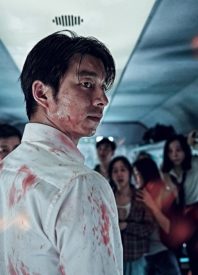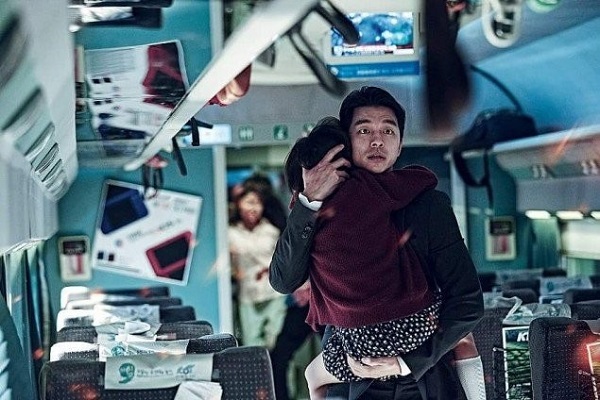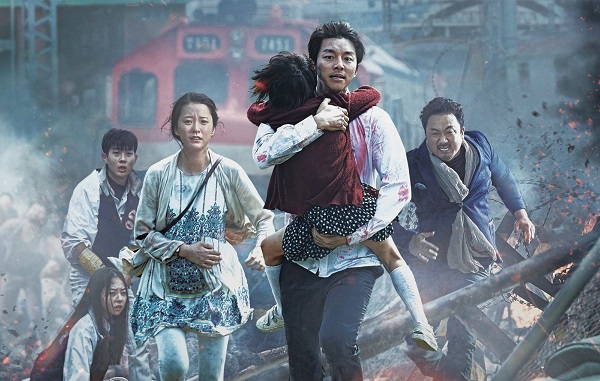
They want us to believe that it’ll protect us, but that’s a lie. We protect us. We do. Nobody else.
Rob Bilot, “Dark Waters”
The most underrated film of last year was Todd Haynes’ criminally underseen Dark Waters, a film that many of you missed because you were too busy tripping over yourselves to fawn over Parasite as the ultimate anti-capitalist film. Dark Waters is certainly just as anti-capitalist, if not more so. It is a film with a number of theses, but one of them undoubtedly is the idea that capitalism is so ingrained into the structures of our world, that its poisons are literally inside of our blood.
Moreover, Haynes’ film takes on an interesting new wrinkle in the middle of a global pandemic, the effects of which are being felt most ardently in countries which have embraced capitalism to the greatest extent. The situation in the United States has become so dire that, for once, someone’s “meanwhile in Canada,” tweets might actually have some semblance of accuracy. At the very least, the rapidly deteriorating conditions in the United States offer another stark example of another one of Dark Waters’ chief ideas, which is that the system does not care about you in the slightest. Bilot delivers this icy diatribe towards the film’s conclusion outside of a Benihnana. What follows it is a series of tracking shots, rolling down urban strip mall after strip mall. It is a stark reminder of the labyrinthian nature of urban capitalism in the 21st century, where whole acres of land are converted solely to consumptive use.
The third idea of Dark Waters is one that is shared by Yeon Sang-ho’s zombie cult hit Train to Busan. Namely, it is that our only resolve against the machinations of capitalism is to protect each other. For the most part Yeon’s cult classic is relatively rote. When a fund manager named Seok-woo (Gong Yoo) must accompany his daughter (Kim Su-an) to visit their mother in Busan, a zombie outbreak throws a wrench into their plans. As the world collapses around them, the pair joins up with a rag-tag group of survivors, one of whom is the very hot Choi Woo-shik, who plays a High School baseball star named Yong-guk.
I’ve talked a lot about zombie films for this site over the past year or so. Part of this, is that we tend to cover genre cinema, and the zombie film is a modern genre cinema classic due to its well ingrained tropes and ease of development. Really, to have a zombie hit does not require a noticeably deep dissection of our world and human nature. For the masses to get behind a zombie film, you need thrills. The tension here is that a deep dissection of our world and human nature would likely result in a better film, but the thrills are enough to merely get by.
With Train to Busan, Yeon undoubtedly crafts a number of well-constructed set-pieces. The use of light and dark towards the film’s middle section in particular provides some genuinely unique cinema. There is tension. One cannot say that there isn’t.
But it’s very difficult to do both in this scenario, or at least do both and have both be inventive. In this scenario, Yeon chooses to maximize the inventiveness of their set-pieces, at the expense of creating more unique characters. This is, through and through, a survival movie; it has its own bevy of stock characters. Of course the film is going to be from the perspective a relatively well-off upper-middle father figure, too engrossed in his own work to properly recognize the needs of his child. This is obviously the audience’s surrogate; the in with which they will approach understanding the narrative.
What separates Train to Busan from most survival films, is the film’s emphasis on the collective as the only too to survive. The ultimate survival film is McTiernan’s Die Hard, a film that you watch every Christmas about a lone individual taking on a nefarious force. This is the reading that facilitated the innumerable sequels, but it misses the fact that one, McClane never would have made it out of there if it weren’t for Al, and two, McClane was scared witless throughout the whole damn ordeal. He needed the help of others just to make it through the night.
In Train to Busan, it is those who wish to divide us that meet their sticky ends. The obvious scene where this occurs features a rich businessman (Kim Eui-sung) emphatically declaring that our exhausted protagonists, who fought their way to the front of the train, must be segregated. It’s the lesson that Seok-woo has to learn over the course of the film, a character arc from individual thinker to someone collectively oriented. To distill this into a cliché: “teamwork makes the dream work.”
It makes sense for a world where citizens are offered little protection. There’s a fascinating news reel where Yeon shows the national government, who claim that the situation is under control. They then immediately cut to an extreme long shot over top a Korean city, where the rapid destruction is clearly evident by the plumes of smoke scattered across the landscape. In a world where our leader care little about our well being, and are far more invested in the visual preservation of the status quo, the only option that we have to work together. I’d argue that it’s barely noble, but rather, is a pure preservation instinct.
The nobility comes from Train to Busan’s ending. Nothing is really subversive about this film, save the ending. The ultimate zombie film is George A. Romero’s Night of the Living Dead, a low-budget classic that ingrained many of the tropes that Yeon liberally borrow from to build their film. It’s the ending of Romero’s film, however, that the real gut punch more so than anything to do with the living undead. For the uninitiated, Night of the Living Dead’s conclusion is notable for its blunt nihilism. As backwoods militia groups sweep across the nation to clean-up the zombie epidemic, they stumble upon the house where Ben (Duane Jones), a Black man, remains having survived the night. The rednecks are ruthless; they shoot him dead and callously proclaim that he’s another one for the fire.
This moment is powerful, because starkly removes any pretense of the hidden vitriolic underbelly of America. To the largely white, male, force taking back America, Ben is no more human than the literal dead. That alone, is more shocking a realization than watching people gnaw on chicken bones pretending they’re human femurs.
Yeon’s conclusion to Train to Busan subverts this. As the Korean military prepares to take whatever they deem to be inhuman, young Su-an sings to them. Their humanity is recognized, and they’re welcomed into safety. It’s a hopeful subversion, but an important one nonetheless. If we are the ones that protect us, then we will only be able to do so by recognizing the humanity in each other. Wear a mask.




